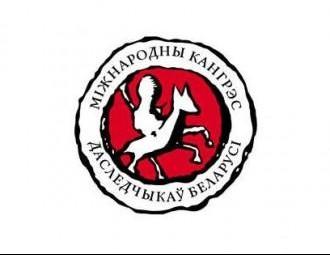Lithuania welcomes III International Congress of Belarusian Studies

On 11 October, the Third International Congress of Belarusian Studies has started in Kaunas, Lithuania. The Congress brings together many scholars of Belarus, stresses its uniqueness Ryhor Astapenia.
Some call the event an academic supermarket, as it combines a great variety of topics and experts. In addition to panel and sanction discussions, the organisers will arrange presentations on various books and scholarly projects. This year, an international panel will also select the best scholarly works of the past year and reward their authors.
Though most of the participants are Belarusians, foreign researchers have become a significant part of the convention, and in some sections they may even constitute a majority. This conference displays researchers who focus on Belarus at an international level and breaks down the isolation of Belarusian academia.
There is an opportunity to watch the Congress Online, asBelarus Digest live broadcasts selected sessions from the congress programme at the following times (UTC+02:00, Lithuanian time zone).
Friday, 11 October 10.00-11.20, 11.50-13.20
Saturday, 12 October 17.00-21.00
Sunday, 13 October 12.30-14.00
History of the Congress
The International Congress of Belarusian Studies will start its work for the third time. Since 2011 the congress takes place annually, bringing together a large range of researchers, journalists, civil society leaders and students. It remains the largest event of scholars and experts working on Belarus. This year, about 400 researchers will come to Kaunas from 16 countries.
Deutsche Welle compared the event with an academic supermarket. This year, experts will cover a range of topics from the problems of transformation of the economy and the history of the Grand Duchy of Lithuania and neighboring states, to politics and international relations, culture and historical heritage, gender rules and psychology. Multiple parallel sessions will take place simultaneously.
Among other events, Makoto Hayasaka, a professor from the Tokyo Institute of Technology, will present his book "History of a Borderland: Speculations on the Past of Belarus". The Centre for Transition Studies will present the Journal of Belarusian Studies, the only English language peer-reviewed periodical of Belarusian studies.
This year, for the first time, the congress will recognize the best publications in the field of social sciences and the humanities with a special award. 28 nominees have a place on the short list, among them a contributing author to Belarus Digest, Vadzim Smok.
The Institute of Political Studies "Political Sphere" remains the main organiser of the Congress. The Ministry of Foreign Affairs of Lithuania, the German Marshall Fund, the International Consortium "EuroBelarus"/Forum Syd, Nordic Council of Ministers are funding the event. Vytautas Magnus University and Institute of the Grand Duchy of Lithuania as well as the Belarusian Institute for Strategic Studies and an online magazine "New Europe" feature among the other organisers of the event. It is noteworthy that all these organisations are registered abroad.
Breaking through the isolation of researchers
The Director of the Institute of Political Studies Andrej Kazakevich explained to Belarus Digest that "two-thirds of the participants will be Belarusians. In addition to Belarusians, neighbours of Belarus like Poland, Ukraine and Lithuania will also be well represented. Only a few people represent Western Europe, USA or Asia." Although most participants are Belarusians, the presence of other researchers remains prominent. Last year, in the literary section there were more foreign researchers than Belarusians.
Though the event remains purely academic, the authorities of Belarus have not yet developed their own official line towards it. Last year, Siarhei Tokc, a historian from Hrodna, could not visit the conference. The administration of the university where he teaches said that his speech was undesirable and prevented him from going. However, organiser Andrej Kazakevich said that such cases happen very rarely. On the other hand, last year, even the staff from the Information and Analytical Centre of the Presidential Administration and representatives from Belarus State University took part in the event.
In today's Belarus universities often face restrictions regarding certain participants or topics. The event in Lithuania is free from such constraints and provides a unique platform for debates and exchange of ideas. It also increases the quality of Belarusian studies and helps integrate Belarusians into the global research community.
-
03.01
-
07.10
-
22.09
-
17.08
-
12.08
-
30.09



























